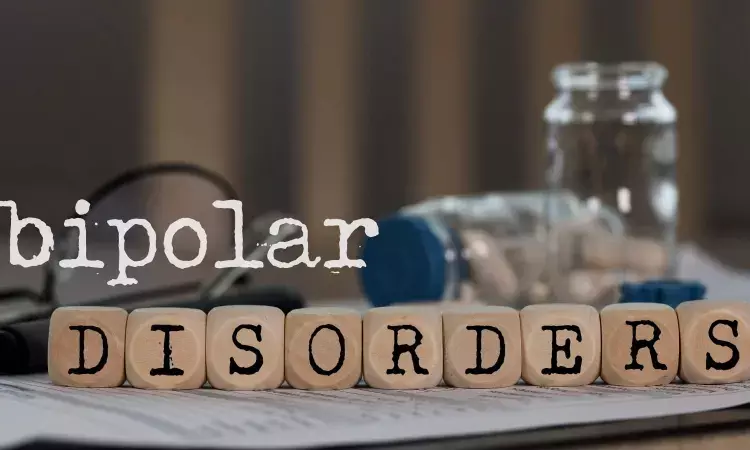- Home
- Medical news & Guidelines
- Anesthesiology
- Cardiology and CTVS
- Critical Care
- Dentistry
- Dermatology
- Diabetes and Endocrinology
- ENT
- Gastroenterology
- Medicine
- Nephrology
- Neurology
- Obstretics-Gynaecology
- Oncology
- Ophthalmology
- Orthopaedics
- Pediatrics-Neonatology
- Psychiatry
- Pulmonology
- Radiology
- Surgery
- Urology
- Laboratory Medicine
- Diet
- Nursing
- Paramedical
- Physiotherapy
- Health news
- Fact Check
- Bone Health Fact Check
- Brain Health Fact Check
- Cancer Related Fact Check
- Child Care Fact Check
- Dental and oral health fact check
- Diabetes and metabolic health fact check
- Diet and Nutrition Fact Check
- Eye and ENT Care Fact Check
- Fitness fact check
- Gut health fact check
- Heart health fact check
- Kidney health fact check
- Medical education fact check
- Men's health fact check
- Respiratory fact check
- Skin and hair care fact check
- Vaccine and Immunization fact check
- Women's health fact check
- AYUSH
- State News
- Andaman and Nicobar Islands
- Andhra Pradesh
- Arunachal Pradesh
- Assam
- Bihar
- Chandigarh
- Chattisgarh
- Dadra and Nagar Haveli
- Daman and Diu
- Delhi
- Goa
- Gujarat
- Haryana
- Himachal Pradesh
- Jammu & Kashmir
- Jharkhand
- Karnataka
- Kerala
- Ladakh
- Lakshadweep
- Madhya Pradesh
- Maharashtra
- Manipur
- Meghalaya
- Mizoram
- Nagaland
- Odisha
- Puducherry
- Punjab
- Rajasthan
- Sikkim
- Tamil Nadu
- Telangana
- Tripura
- Uttar Pradesh
- Uttrakhand
- West Bengal
- Medical Education
- Industry
Liraglutide 3 mg per day Shows Efficacy in Weight Loss for Individuals with Bipolar Disorder: Study

Obesity is prevalent among individuals with bipolar disorder (BD), posing significant health risks. Liraglutide, a medication indicated for chronic weight management, has shown promise in reducing body weight with minimal neuropsychiatric effects. A recent study aimed to evaluate the efficacy and safety of liraglutide 3 mg/d in individuals with stable BD who were obese or overweight.
This study was published in the Journal of Clinical Psychopharmacology by McElroy and colleagues. Individuals with BD face a higher risk of obesity due to various factors, including medication side effects and lifestyle factors. Effective weight management strategies are crucial to mitigate associated health risks and improve overall well-being in this population.
The objective of the study was to assess the effects of liraglutide 3 mg/d on body weight, metabolic factors, and eating psychopathology in individuals with stable BD who were obese or overweight. The study was a 40-week, randomized, placebo-controlled clinical trial involving 60 participants with stable BD and obesity or overweight. Participants were randomized in a 1:1 ratio to receive either liraglutide 3 mg/d or placebo, in combination with a reduced-calorie diet and increased physical activity.
• The primary outcome measure was the percent change in body weight from baseline to the end of the study.
• Secondary outcomes included the percentage of participants who lost ≥5% of baseline body weight and changes in metabolic variables and measures of eating psychopathology.
• Compared to placebo, liraglutide recipients experienced significantly greater reductions in body weight, BMI, hemoglobin A1c levels, binge eating, and hunger.
• Liraglutide was well tolerated, with no significant differences in baseline characteristics between the liraglutide and placebo groups.
The study findings suggest that liraglutide 3 mg/d may be an effective and safe option for weight loss in individuals with stable BD who are obese or overweight. This medication could potentially address the significant health risks associated with obesity in this population.
Reference:
McElroy, S. L., Guerdjikova, A. I., Blom, T. J., Mori, N., & Romo-Nava, F. Liraglutide in obese or overweight individuals with stable bipolar disorder. Journal of Clinical Psychopharmacology,2024;44(2):89–95. https://doi.org/10.1097/jcp.0000000000001803
Dr Riya Dave has completed dentistry from Gujarat University in 2022. She is a dentist and accomplished medical and scientific writer known for her commitment to bridging the gap between clinical expertise and accessible healthcare information. She has been actively involved in writing blogs related to health and wellness.
Dr Kamal Kant Kohli-MBBS, DTCD- a chest specialist with more than 30 years of practice and a flair for writing clinical articles, Dr Kamal Kant Kohli joined Medical Dialogues as a Chief Editor of Medical News. Besides writing articles, as an editor, he proofreads and verifies all the medical content published on Medical Dialogues including those coming from journals, studies,medical conferences,guidelines etc. Email: drkohli@medicaldialogues.in. Contact no. 011-43720751


